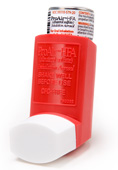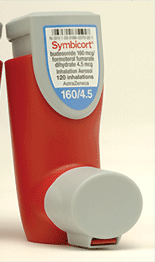I've been following Kent Bottles' fascination with the state of our knowledge about our knowledge for a while here and here, with particular interest paid to Donald Rumsfeld's famous phrase.
I've decided we need another term.
What do you call it when you can not recall the state of your previous ignorance?
If this sounds trivial, consider this: upwards of half of patients don't know what their physicians are talking about. In a word, it means doctors are not always the best teachers. Why is this?
Doctors master several necessities of effective teaching; knowledge, passion for the subject, and clarity of both staging and content delivery. However, there is one essential element that physicians understandably may not excel at- being able to step into the learner's shoes and explain the world in terms that they are familiar with.
For example, doctors' explanations often hinge on a grasp of anatomy far in excess of their patients' familiarity. A description of why back pain is muscular and not neurological may include several anatomical references that quickly overwhelm the patient's ability to keep up.
The real trouble is that doctors often don't know how much the patient does not know about anatomy, a kind of unknown unknown.
Interestingly, all doctors used to know how much patients don't know about anatomy, because all doctors were at this state of ignorance before their training. So it's not a simple unknown unknown, but rather a forgetting.
If doctors could better recall what it was like for them prior to their own education and training, then they might be better teachers, and patients might come away better aware of their conditions and more likely to adhere to their recommendations.
If we had a term for this, then perhaps we could more easily point it out and better train doctors to teach their patients. I propose the following term:
Prenosognosia
PRONOUNCIATION: pre-no-sog-NOH-zee-uh
MEANING: noun Unawareness of one's previous state of not knowing.
USAGE: "I don't understand my doctor, maybe she has prenosognosia- she talks to me like I've spent four years in medical school."
I've decided we need another term.
What do you call it when you can not recall the state of your previous ignorance?
If this sounds trivial, consider this: upwards of half of patients don't know what their physicians are talking about. In a word, it means doctors are not always the best teachers. Why is this?
Doctors master several necessities of effective teaching; knowledge, passion for the subject, and clarity of both staging and content delivery. However, there is one essential element that physicians understandably may not excel at- being able to step into the learner's shoes and explain the world in terms that they are familiar with.
For example, doctors' explanations often hinge on a grasp of anatomy far in excess of their patients' familiarity. A description of why back pain is muscular and not neurological may include several anatomical references that quickly overwhelm the patient's ability to keep up.
The real trouble is that doctors often don't know how much the patient does not know about anatomy, a kind of unknown unknown.
Interestingly, all doctors used to know how much patients don't know about anatomy, because all doctors were at this state of ignorance before their training. So it's not a simple unknown unknown, but rather a forgetting.
If doctors could better recall what it was like for them prior to their own education and training, then they might be better teachers, and patients might come away better aware of their conditions and more likely to adhere to their recommendations.
If we had a term for this, then perhaps we could more easily point it out and better train doctors to teach their patients. I propose the following term:
Prenosognosia
PRONOUNCIATION: pre-no-sog-NOH-zee-uh
MEANING: noun Unawareness of one's previous state of not knowing.
USAGE: "I don't understand my doctor, maybe she has prenosognosia- she talks to me like I've spent four years in medical school."



